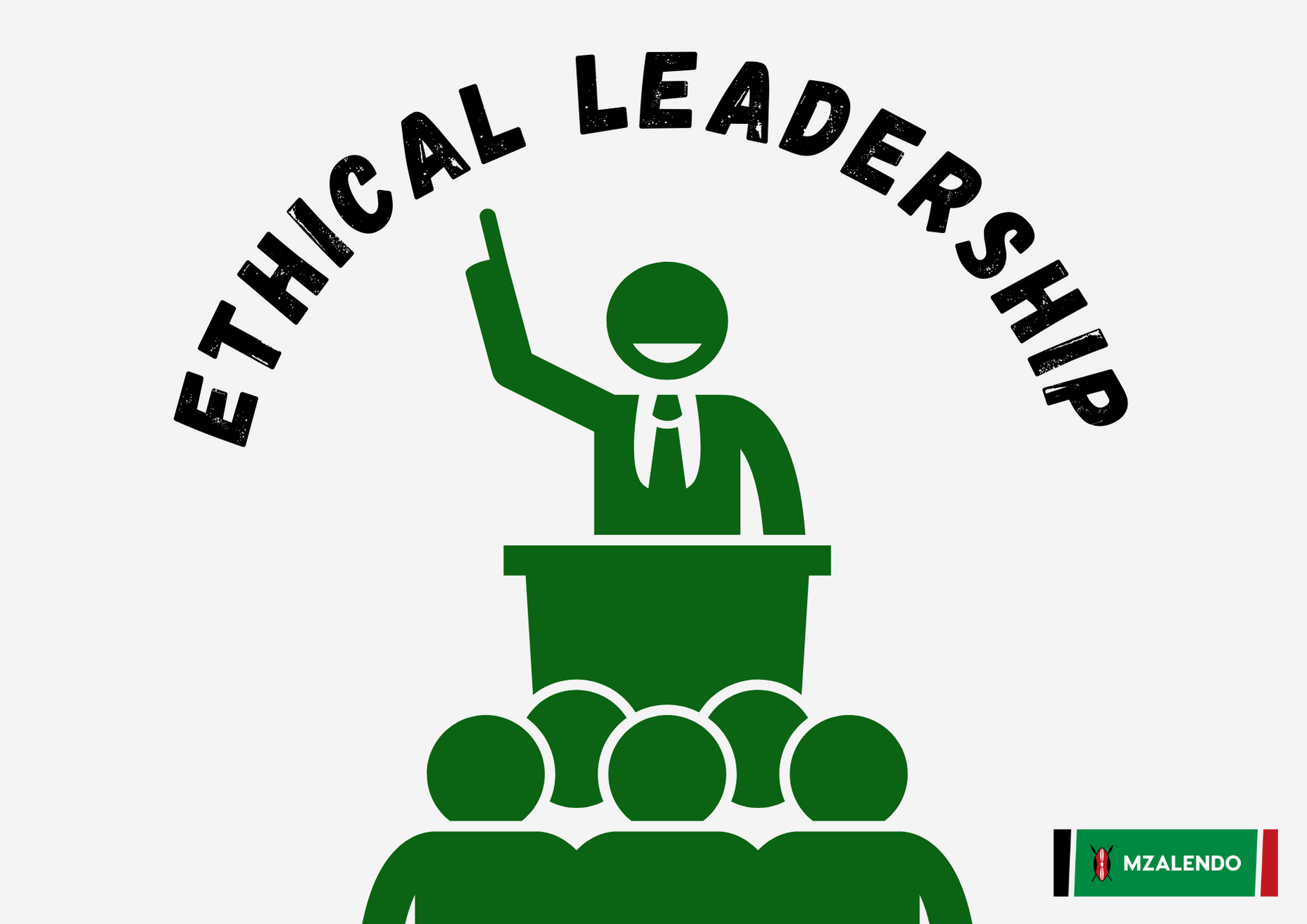Home » Media Centre » Blogs » A Clarion Call for Ethical Leadership in Kenya

Ethics is a philosophical term originating from the Greek word “ethos” meaning custom or character. It is concerned with describing and prescribing moral requirements and behaviours, which suggests that there are acceptable and unacceptable ways of behaving in a particular society. In our African settings, our desires have been driven by a strong urge to join rather than divide, to bring together rather than set apart, to unify rather than splinter, in short, a communal ethos where success could be viewed from a communal lens rather than an individualistic perspective. Are we still ascribing to this calling as a nation?
The Constitution in 2010 provided a one-stop opportunity for consolidating gains made in Kenya’s governance struggles dating back almost two decades. An innovation of the new constitution was a chapter on leadership and integrity which introduced a set of standards addressing misrule in general, and corruption, in relation to public office. The chapter titled ‘Leadership and Integrity’, commonly referred as Chapter Six, was a response to experiences in public administration over the last decade.
The National Constitutional Conference held in 2005, was the first occasion where leadership and integrity were discussed at length. The report noted that, leadership is the backbone of the success of any undertaking, be it at village level, community project, business, a local authority or even the country. It further added that leadership at its very best, determines the continued support of the people, national unity and the growth and development of a country.
The report on the other hand reiterated that integrity plays an important role in ensuring that leadership remains focused on the interest of the people and desired by the people. It added that “Leaders are faced with moral and ethical dilemmas every day” and that “in this light, integrity, which basically involves leaders consistently behaving in an honest, ethical, and professional manner, promoting and advocating the highest standards of personal, professional and institutional behaviour, is of utmost importance in their tenure.” Some recent actions and utterances from our leaders have left Kenyans dumbfounded and wondering how we even got here and where we are heading as a nation.
The Iron Chancellor of Prussia is reputed to have observed that a person with any affection for laws, like a person with any affection for sausages, should not inquire too closely into the processes by which they are made. Fortunately, recent trends on legislative making have leaned towards transparency and every step of law making cannot escape public scrutiny. Utterances by the National Assembly Majority Whip that the state employed chicanery and even bribery to sway the vote on the Finance Bill 2023 by the opposition legislators left Kenyans with more questions than answers. In any serious society the utterances should have been condemned and the member should have been summoned by the House to substantiate his utterances as they bring disrepute to the House, unless of course they were true.
We have been treated to instances where a member of Parliament decided to be the judge, jury and executioner when he was aggrieved by actions of junior officers of a power supplying company. While we have seen swift action from the police, why is Parliament silent on the incident? Does it then mean that such conduct is to be condoned?
Leaders serve as role models for their constituents and demonstrate the behavioural boundaries set within a society. The appropriate and desired behaviour is enhanced through culture and socialization process of the younger generation. They learn about values from watching leaders in action. The more the leaders “walk the talk”, by translating internalized values into action, the higher levels of trust and respect they generate from their followers.
As a nation and having celebrated the African Anti-Corruption Day this week, we urge leaders to demonstrate respect for human dignity, pursue the common benefit of all Kenyans in words and actions, uphold justice, exercise wisdom, and apply proportionality within a virtuous range. One way to gauge the strength of our collective ethics is to consider the consequences of violation. We consequently urge Parliament to enforce its code of conduct and call out conduct unbecoming of its members as a way of restoring public trust in the legislature.
Categories: parliament ethical leadership leadership and integrity Chapter Six misconduct
You must login to comment
There are no comments.